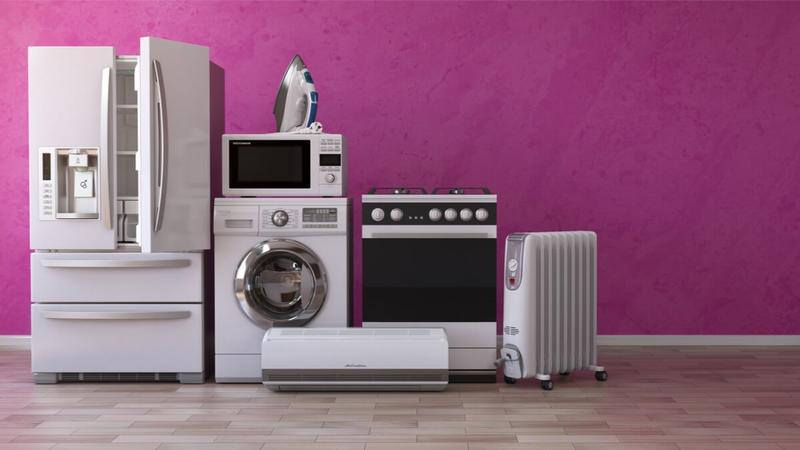Every day we use a number of appliances and tools designed to make our lives easier. But as much as these help us save time and energy, they can pose real risks to our homes.
The good news is that it's rather easy to stay safe. By being mindful of potential hazards, you can prevent a serious incident from damaging your home or your family's health.
1. Washers and Dryers
The lint trap in your dryer catches flammable material, but that's only one part of the machine that's a fire hazard. If lint collects in the filter and trap, there's less airflow through the unit. This can cause a buildup of heat in the vents and lint may gather on the heating coils. Keep it clean to make sure it works efficiently and safely.
2. Refrigerators
Refrigerators are always running, which means there's always a chance components could overheat. To avoid shorting the electrical system, keep the fridge clean from the inside out. Regularly review the compressor to make sure it's not overworked and follow your model's safety manual tips for ongoing maintenance.
3. Microwaves
It's quick and easy to cook in the microwave, but you face a hazard if you have a warped door or use metal utensils. Aluminum or metal ware can cause sparks, leading to injury. Also, try to mind your cooking time so food doesn't get too hot. Boiling liquids can cause serious burns.
4. Electrical Cords
Even the most reliable extension cords can crack under the pressure of too many appliances. Replace old, worn cords and don't plug in too many things at once. To be extra safe, purchase an extension unit with a built-in circuit breaker that shuts everything off when the unit is overloaded.
Also, be kind to all of your plugs and outlets. Don't force a plug into outlets of the wrong size. Invest in product upgrades whenever a connection seems weak or a cord is frayed.
5. Dishwashers
There's a lot of heat in your dishwasher; that's what ensures those dishes get nice and clean. Over time, the elements in the appliance can get old or damaged and are more vulnerable to risks that come with those high temperatures. Perform regular maintenance to make sure your machine is working at top efficiency. You may want to consider a check up from an appliance repair person for particularly older units.
Also, especially if you have curious little ones in and around your kitchen, use the latch on the washer to keep it closed whenever it's in operation.
6. Small Appliances
Electrical risks are particularly potent with small, handheld appliances or items you keep near you at home. Hair dryers, space heaters, and toasters are just three examples. To minimize the chance of short-circuiting an outlet or causing the appliance to overheat, keep it unplugged when not in use. For space heaters, opt for a model with an automatic shut off that kicks in upon reaching a set temperature.
How to Stay Safe
These examples show that regular maintenance on your appliances can help alleviate some fire risk. Check your wiring on a regular basis. If there are signs of unsafe electricity -- like flickering lights, outlets that don't work, or sparks when you plug in an appliance -- stop using the power in that area and call an electrician.
Learn More About Home Insurance
Insurance is an important part of your household safety plan. In addition to taking precautionary measures to reduce risk, look at your options for the best home insurance rates on InsuranceHotline.com.
